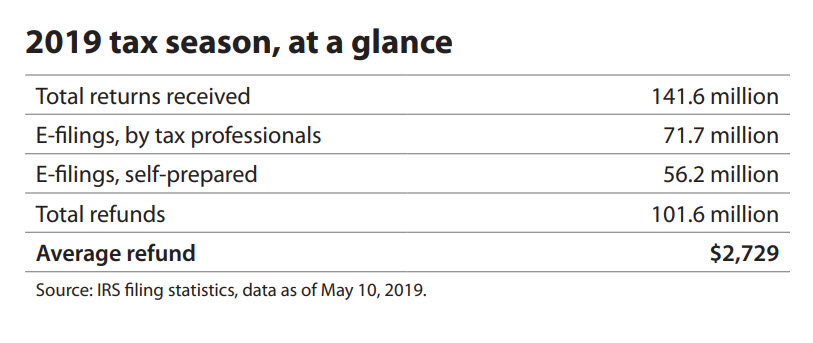- feature
- PRACTICE MANAGEMENT
How to deal with last-minute clients
CPAs explain the tactics they use to nudge procrastinating clients to meet deadlines.
Please note: This item is from our archives and was published in 2019. It is provided for historical reference. The content may be out of date and links may no longer function.

Related
Tell a story with your documentation
Getting unstuck by rethinking processes, people, and AI
How a CPA beat burnout after strokes, years of depression
Ask any public accountant which of their regular clients will be pushing up against an impending busy season deadline, and chances are he or she can name them ahead of time.
That’s because people tend to be creatures of habit, and previously tardy clients are likely to remain that way without a little intervention. Here’s advice from several CPAs on how to plan for, and even reform, those habitually late clients.
MAKE IT EASY WITH THE CLOUD
Ryan Hagan, CPA, the managing partner of Altruic Advisors, a virtual accounting firm focused on serving not-for-profit organizations around the country, started in public accounting 22 years ago. At that time, many of his clients came in right before a tax deadline, often with complicated situations that increased the chance of delay.
But now cloud-based accounting software allows accountants and their clients to interact year-round. At Hagan’s firm, clients can upload documents anytime, and both they and Hagan’s accounting staff can get real-time assessments of where audits, tax returns, or other reports stand. Clients also get checklists so they can clearly see what they need to do for Hagan’s team to do their work.
“They can go through the checklist item by item,” he said. “It’s a clear indication of what’s remaining and what the expectations are.”
His staff can also look internally to assess which accounts are behind. Staff can then determine when they need to jump in and bring attention to clients who may need additional help.
SEND PLENTY OF REMINDERS
Letting clients know ahead of time what deadlines are coming up and what documents they need to provide to meet them can prompt clients to stop dragging their feet, said L. Quinn Hart, CPA, a partner at accounting firm Strothman and Company in Louisville, Ky. Her firm had always sent reminders with lists of needed documents to clients but didn’t necessarily reach out to their business clients on a set schedule. Then the firm began using a new piece of software last year that was easy to use on the client end and gave earlier reminders about documents needed by the tax professionals in Hart’s office. The software, used primarily for business clients but also some individual tax clients, allows clients to drag and drop needed items into the firm software and also gives a clear picture of what documents are still needed, what has already been submitted, and whether firm staff have reviewed the information.
Those little nudges, in emails and communications through the firm’s accounting software, paid off with a noticeably smoother process on the firm’s end.
“We actually got a lot of information sooner,” said Hart, who had assumed that clients would stick to their own schedules and was pleasantly surprised at how effective the reminders were.
Reminders can come by mail or email, or even via technologies that can text clients to let them know about upcoming deadlines.
BE PROACTIVE ABOUT UNUSUAL DELAYS
What can be more concerning than perpetually late clients are small business owners or individuals who have been timely in years past but haven’t reached out by midseason to set up a time to talk about their taxes.
That can be a sign that a bigger issue is brewing and that it might need more attention and time than past tax returns have required, Hart said.
Hart reaches out to those clients by phone in mid-March to gently inquire about their status and to see what the situation is. It could be a health problem or a financial situation that means the tax bill may be tougher to pay this year. Then she and the client can talk directly about how to handle things and whether to file for an extension.
“It’s usually they’re dreading it for some reason, which is the worst reason to put it off,” Hart said.
ACKNOWLEDGE THE PERPETUALLY LATE
Part of public accounting is acknowledging that a certain percentage of clients will always rush in at the last minute, whether right before April’s deadline or before the extension filing deadline in the fall, said Paul Grummett, CPA, of Kline & Company CPA in Nashua, N.H., a firm that specializes in taxation and DCAA compliance of federal government contractors.
He suggests going in with an attitude of acceptance toward these latecomers and making sure there’s some energy left toward the end of the busy season to deal with what many see as an inevitable aspect of the profession.
“It’s more a mindset than anything year to year,” he said.
His firm reaches out to clients in advance to let them know about deadlines and when to get information in. But if clients come in at the last minute expecting a miraculous turnaround, he politely tells them he’ll do his best but advises them to expect an extension if it cuts too close to the wire.
“We’ll try to get it out, but no guarantee,” he said.
Managing clients proactively is important. Some firms, for example, inform clients that if their information is not submitted by the firm’s cutoff, their return will automatically be extended. Cutoff dates vary by firm, but for those that use them, the cutoff generally is no less than four weeks before a deadline. Setting expectations upfront is crucial for firms to avoid a last-minute flood of work that would overwhelm the staff.
EMPHASIZE THE BENEFITS OF TIMELINESS
Hart tries to emphasize that when clients submit their information earlier, it allows her and the firm’s other CPAs to spend more time helping with strategic advice instead of rushing at the end of a strenuous busy season.
“You really don’t want to wait until later in the season,” she tells her clients. “It really benefits you to get your stuff in earlier.” (See the sidebar, “The Feelings Behind Late Tax Filing,” for a psychologist’s tips on helping clients who keep putting off the work of tax filing.)
CONSIDER PENALTIES
This is definitely a more stick than carrot approach, but it works at Hagan’s firm, which primarily serves not-for-profit organizations with tight budgets and agreed-upon pricing for audits and tax filings.
By understanding how costs might escalate if firm staff have to chase down documents, the firm’s clients have more incentive to meet the firm’s well-communicated deadlines.
“If there’s additional accounting work, you’re going to get dinged for that,” he said.
The key is being clear ahead of time by defining the scope of services in engagement letters, the firm’s standards for communication, and the expectations of receiving documents in a timely manner so that clients aren’t caught by surprise when a bill for additional work is received. Hagan said his firm has made that clarity a priority.
“As a CPA firm, we’ve gotten much better about setting expectations,” he said.
With some work on the front end, CPA firms can turn their perpetually late clients into early filers, leaving time and capacity to handle the stragglers.

The feelings behind late tax filing
Many people delay filing their tax returns because they don’t want to feel bad and would rather delay their responsibility than deal with the reality of their tax obligations, said H.M. “Monty” Evans, Ph.D., a psychologist at the University of Texas Southwestern Medical Center.
“It’s obviously impractical, but it’s a way to manage your short-term feelings,” he said.
Disappointment, anger, or fear may prompt some clients to drag their feet — a challenge for tax preparers with schedules and deadlines of their own.
Evans shared some thoughts about ways to prod those clients along:
See life events as a root cause. If someone had a change to his or her life for a less-than-joyous reason — such as a divorce, the death of a loved one, or unemployment — assessing his or her financial situation may be more difficult than usual. If a client is in that situation, Evans suggested reaching out earlier than normal to go over tasks to file on time.
Give concrete steps. Procrastinators may be overwhelmed by the volume of what needs to be done to file their taxes, and they shut down as a result. In requests, clearly lay out two or three initial steps, like submitting certain documents to be completed by a set date, Evans said.
Set dates with requests. It’s important to communicate deadlines of when things need to be submitted, Evans said. Those who struggle with completing unpleasant tasks will keep putting it off if the task is left open-ended. “If you don’t put a deadline on decision-making, it turns into just being a fantasy you can think about,” he said.
Have accountability checks. For serial procrastinators, it can help to have a staff person check in on progress and to let the client know a staff person will be contacting him or her for an update. Knowing a third party will be checking up is sometimes enough to prompt action.
Create default decisions. Some people may be incapable of meeting the deadlines to get their tax documents in, even with extra prodding. That’s why a default option should be communicated when discussing the deadlines, such as telling a client that, if paperwork and documents aren’t completed by a certain date, the firm will automatically file for an extension.
Deal with anger. Some taxpayers are just angry at the fact they have to pay taxes and are unable to come to terms with that. “The IRS is a reality that you have to deal with,” Evans said. “You can be angry at reality, or you can just accept reality for what it is.” For those clients, Evans suggested acknowledging the person’s anger. One phrase that Evans suggested using: “I appreciate the way you think, but we have to deal with this.”
About the author
Sarah Ovaska-Few is a freelance writer based in North Carolina.
To comment on this article or to suggest an idea for another article, contact Ken Tysiac, the JofA’s editorial director, at Kenneth.Tysiac@aicpa-cima.com.
AICPA resources
Articles
- “Good Clients, Bad Clients: How to Manage Them All,” JofA, June 14, 2017
- “Got a Few Challenging Clients?” CPA Insider, Aug. 22, 2016


















